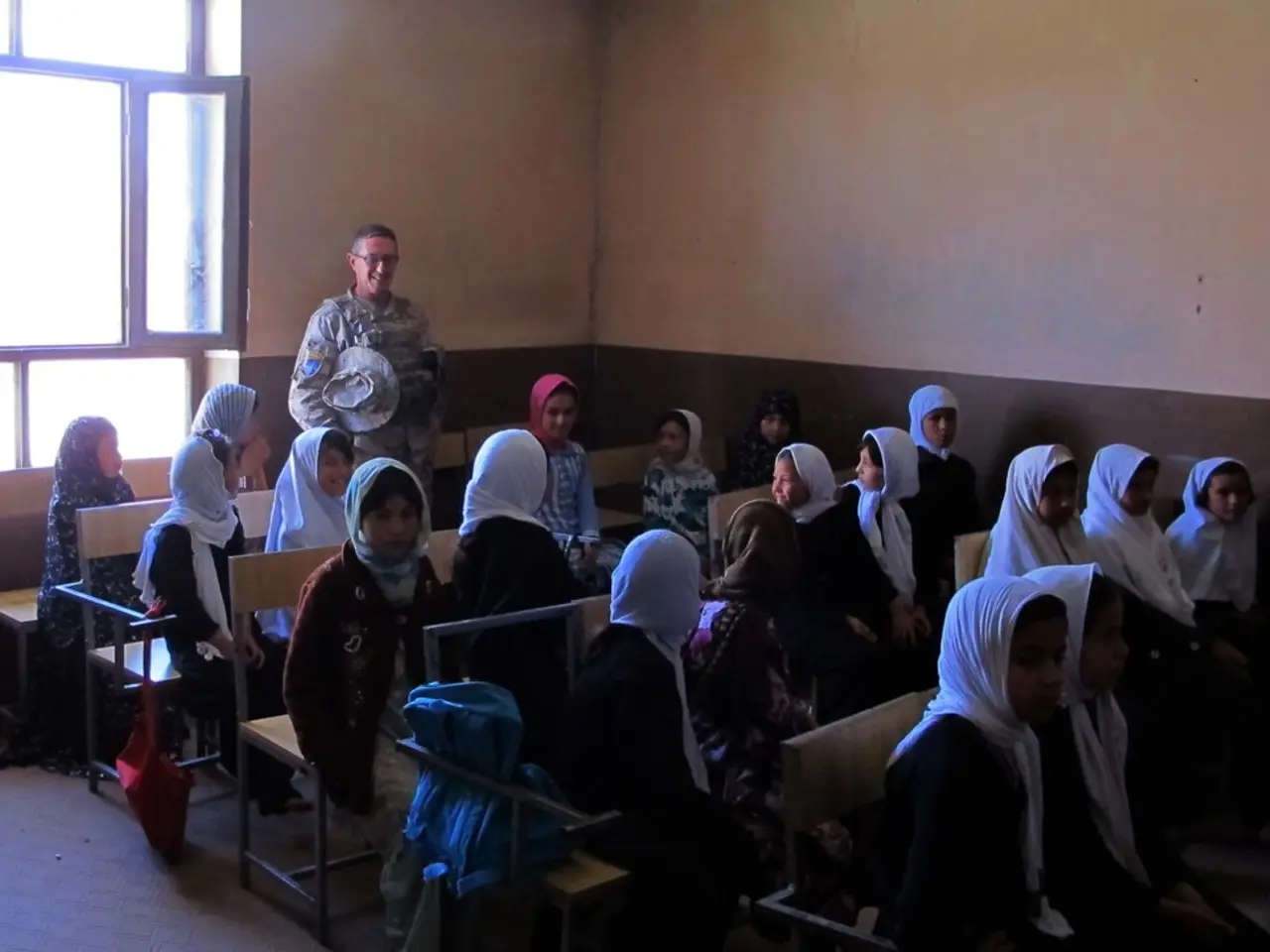University authorities face ongoing challenges as Jewish student demands for change yield mixed results.
In a significant turn of events, a Jewish student, Lahav Shapira, has partially succeeded in a lawsuit against the Free University of Berlin (FU) at the Berlin Administrative Court, marking a landmark case in the fight against antisemitism at German universities [1][3].
The lawsuit stems from an incident in December 2023, when Shapira was prevented from entering a FU lecture hall during a pro-Palestinian occupation, allegedly being grabbed and pushed while enduring anti-Semitic insults [2]. The court's decision requires the FU to explain its measures to prevent discrimination, especially after Shapira's statements about feeling harassed and his basic rights being violated [4].
The FU has denied being inactive and has referred to a concept for antidiscrimination and diversity, a "Diversity and Antidiscrimination Task Force", and an antidiscrimination regulation [5]. However, the specific measures the university is taking to combat antisemitic discrimination and prevent discrimination against Jewish students, particularly in relation to the Middle East conflict, remain largely unclear [6].
The rise in antisemitic incidents, including those linked to tensions around the Middle East conflict, has led to increased scrutiny and public debate about how institutions like universities should handle such issues [2][4]. This public discourse often emphasises the need for institutions to more effectively address and prevent antisemitism.
Universities generally may employ strategies such as education and awareness programs, establishing clear policies and procedures for handling incidents of antisemitism, and providing support services for students who experience or witness antisemitic incidents [7]. To address the specific context of the Middle East conflict, universities may engage in dialogue initiatives and events that promote understanding and respect for diverse perspectives, without promoting hate or discrimination.
Following the Islamic Hamas' terrorist attack on Israel in October 2023, there has been a significant increase in anti-Semitic incidents at Berlin's universities, with 51 such incidents documented in 2024 [3]. Shapira, a Jewish student, claims pro-Palestinian groups held anti-Israel and antisemitic events on the FU campus, with a planned event titled "How we globalize the Intifada" currently being criticised by his lawyer [2].
The counseling centres for victims of right-wing, racist, and antisemitic violence consider Shapira's lawsuit to be of fundamental importance [6]. The court sees a need for clarification regarding the university's measures to prevent discrimination, especially after Shapira's statements about feeling harassed and his basic rights being violated [4].
The trial will resume in October at the Berlin Administrative Court [8]. Shapira's lawyer, Kristin Pietrzyk, described the court's decision as a "great success" [9]. As the case continues, it serves as a powerful reminder of the importance of combating antisemitism and ensuring a safe and inclusive environment for all students.
In light of the court's decision, the case against the Free University of Berlin, initiated by Jewish student Lahav Shapira, has become a significant general-news and crime-and-justice story, highlighting the ongoing struggle against antisemitism at German universities. The court's requirement for the university to explain its measures to prevent discrimination, particularly in relation to the Middle East conflict, underscores the need for clearer politics and strategies to combat antisemitic incidents.








